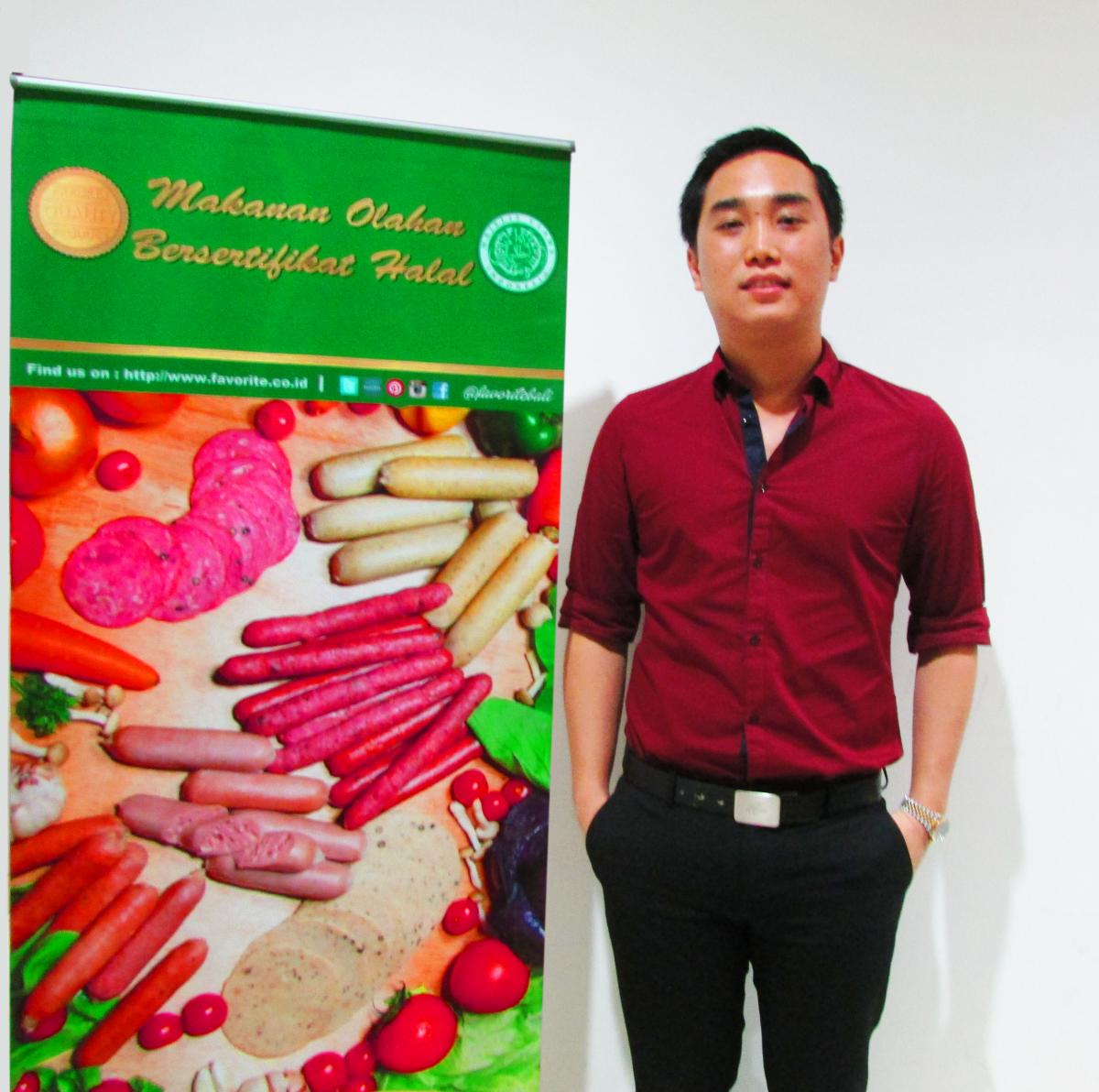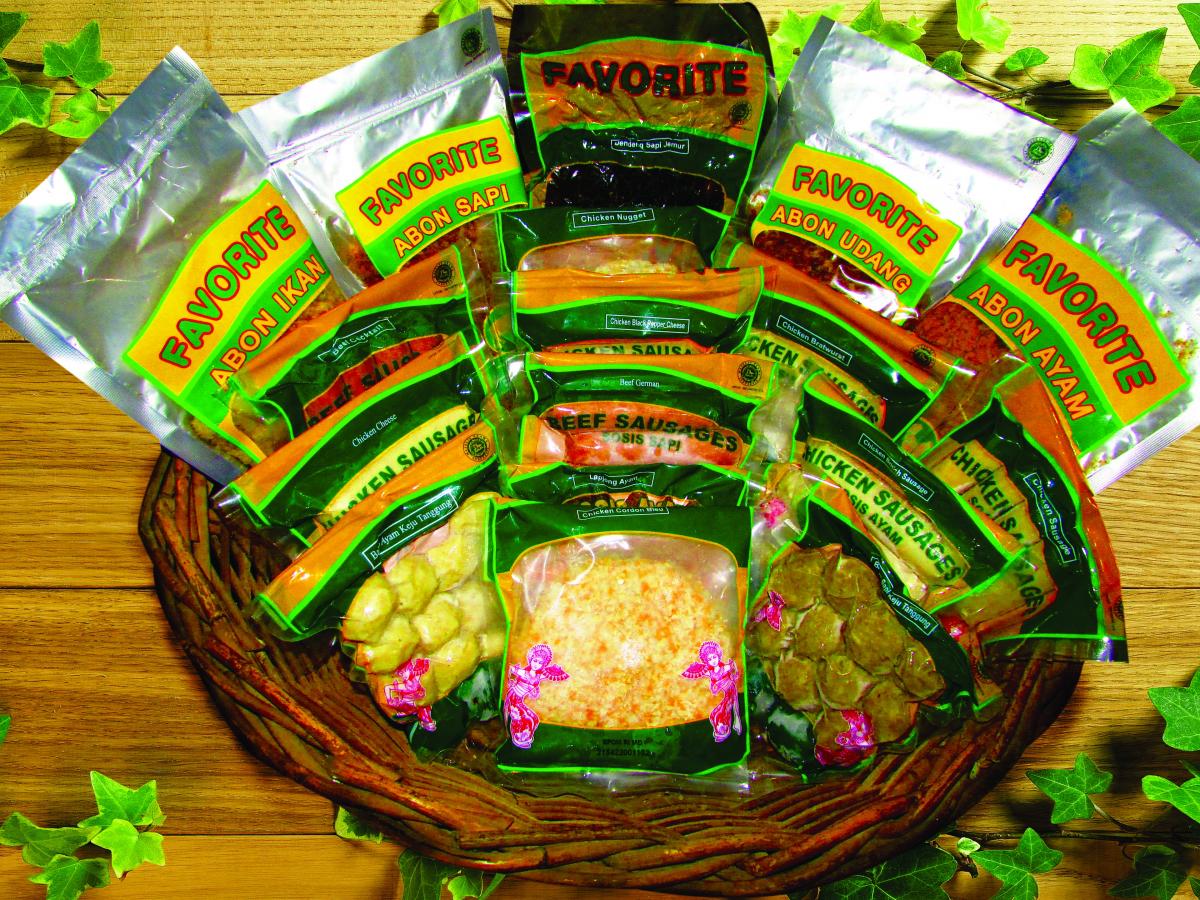CONSUMPTION of meat and processed meat products in Indonesia has soared in recent years, according to the BPS (Central Bureau of Statistics) Indonesia. In a presentation, the National Meat Processors Association Indonesia quoted the BPS as saying that imports of sausages and similar products grew 45 times in 2015 compared to in 2012.*
In this report we talk to managing director Edwin Setiawan of Favorite, a company in Bali that is going the healthy route with its halal processed meat products.

Edwin Setiawan, managing director of Indonesian company, Favorite
The local market for processed meat is growing, but is the industry advancing to meet demand?
In fact, the meat industry is still trying to meet demand as to local taste. One time, a company came to us to sell the seasoning to use in production. Well, here we can see the problem: taste is getting standardized. This is what might be missed by most meat-processing companies in Indonesia.
In our company, all recipes are hand-made and customized carefully from local spices to make sure we bring out the best and competitive meat-processed products to the local market. This is because we believe, basically, Indonesian food is very rich in taste.
Therefore, to bring the meat business to a higher level, we hope the initiatives come from the Indonesian people or from the market itself. If consumers can get smarter and more picky in choosing which products taste better and healthier, it will indirectly drive companies to innovate and re-invest to meet the new demand for better and healthier products. In that way, I hope the meat business in Indonesia can compete with overseas products.
How long has the company been producing processed meat in Indonesia?
Officially, this company has been running since December 2014, but fully operational since March 2015. However, we are not a new player in this industry as my family has been in the (pork) meat-processing business since 1950.
We focus on sausages, dendeng (thinly sliced dried meet), abon (meat floss), meatballs, smoked beef, smoked chicken, smoked seafood, burger, nugget, and chicken cordon bleu. The meats we sell include chicken, beef, fish and shrimp, which are all halal.

Customers want healthier packaged food, and processed meats are considered high in preservatives. What do you think?
It is actually very easy to distinguish between good and bad quality products, particularly for processed meats. Fresh products without preservatives cannot be stored in the chiller for more than three days; in the freezer (at least, -18 Celsius), they can last from 6 to 8 months. Then, if the processed meat displayed in the supermarket chiller has a long expiry date, it can be sure to be rich in preservative.
In addition, the local industry has applied quite tight labeling requirements, i.e. food additives must be named in the list of ingredients on the product labeling. So consumers can directly decide which products are healthy.
How do you maintain product quality?
Although other companies might adjust to Asian market demands (composed of more flour than meat to depress the cost and selling price), we still hold tightly to our principle to produce with 80 percent meat composition.
One of the ways consumers can tell the composition of the meat is by “frying” the product. Consumers can fry high meat composition products with a very little oil, and the meat will expand and a broth will come out from them. When fried, lower meat composition products will shrink and wrinkle instead of expand.
How is food safety conducted in your facility?
We have all the required certifications to comply with the guidelines related to safety, control and hazards. These certifications include: GMP (Good Manufacturing Practices) as the minimum requirements to assure that products are of good quality and do not pose any risks to the consumers or public; halal certification to make sure our products are free from pork, alcohol and certain other ingredients; and HACCP (Hazard Analysis Critical Control Point) to prevent hazards and maintain food safety during production processes.
For companies that have not done any exports, the mandatory certifications are only GMP and halal. But since we prioritize safety in our facility, we see HACCP certification as one of the essential steps needed. Later on, we will also apply for ISO certification.
Where do you source raw materials?
Most of our meat and other raw materials are sourced from Bali and Java islands. We import only one of the ingredients – natural additive – from Belgium because it meets the highest standard requirements internationally.
What ingredients are used to improve meat texture?
We use a little of ISP (Isolate Soy Protein), which is a natural high-protein ingredient to improve the texture of meat products, increase protein content, enhance moisture retention, and as emulsifier.
*http://www.slideshare.net/HaniwarSyarief/opportunity-in-indonesian-meat-intermediate-industry (accessed 29 Feb 2016)
Buty dziecięce
 iConnectHub
iConnectHub
 Login/Register
Login/Register Supplier Login
Supplier Login


























